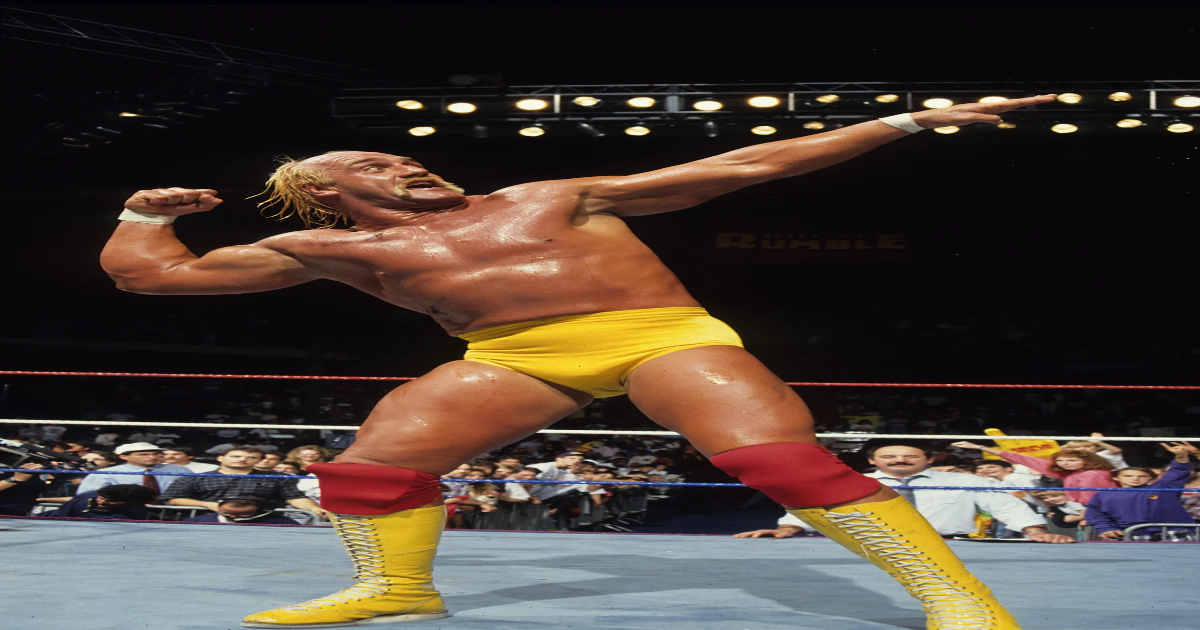Those early Hulk Hogan days were a blur. They were simple days when we’d argue about whether wrestling was real. I remember one kid in the locker room at my grade school, Mike Rutledge was his name, staking his mother’s life on the premise that it was. In the sense that wrestling was actual, that it existed, we can only hope she was spared.
Those were the good days. When, of all the neon colors that were in fashion, yellow was the loudest. This was when Hulkamania was just about to kick up, right as the Iron Sheik came into his focus. This was when Hulk was synonymous with air guitar, and the kids on my block would try to tear their own shirts off while flexing. This was when “Rocky III” came out, and we wanted to sneak a peek at Thunderlips, the strutting villain who tossed Rocky out of the ring.
Advertisement
Advertisement
Hogan a villain? That was beyond our wildest imaginations.
We went around calling each other “brother” in the Hulkiest voice we could manage long before our voices changed. There were Saturday morning cartoons of the Hulk. Cereals. They used to have thumb wrestlers, these little rubber figures with holes in their backs where the thumb would go, and me and my friends would get together with a pile of them and have them go at it — Big John Studd, Iron Sheik, Junkyard Dog, Nikolai Volkoff.
That was a way to spend a Saturday.
Hulk Hogan, who thrilled wrestling fans worldwide in the ‘Hulkamania’ days of the 1980s and ’90s, died Thursday at the age of 71. (Photo by WWE/WWE via Getty Images)
(ASSOCIATED PRESS)
Thing I remember most is, I wanted him to lose. I should say, I wanted to see what the world would look like if he lost. I knew too damn many Hulkamaniacs. He was as ubiquitous as the American flag and larger than life with his gonzo patriotism. Everyone who claimed to be an American loved him, because he was part of the fabric of American culture. The version that rocked with the times.
Advertisement
Advertisement
Loud. Audacious. Bombastic. Yoked.
He was bigger than most movements of that time, bigger than Springsteen, bigger than the mall. Bigger than Muhammad Ali. Bigger than the Cold War itself. Wrestling’s Goliath who made sure all of us were paying attention, because he was forever in your face.
The timeline blurs, and Hulk’s reign for me runs together. This was when Hulk was beating guys like David Schultz regularly. I kept thinking, “What if Schultz wins?” What if some no-name came out of nowhere and beat the great Hulk Hogan? Wouldn’t that be the most miraculous thing? If a jobber shocked the world? We’d all remember where we were at that moment. It would be like Mellow Yellow overthrowing Coca-Cola.
It was impossible. Even when he was losing consciousness, he’d never let his hand fall limp a third time. There was always that resistance, a gathering of strength that you knew was coming. And yet the crowd would let up a roar when his arm halted short of the canvas and then shake as it rose to the heavens. It meant he was coming back. That it wasn’t over.
Advertisement
Advertisement
That he wasn’t dead yet.
The news that Hulk Hogan had passed on Thursday brought it all back. Hogan, who would never die, is now gone. And it’s a complicated thing, as legacies often are. Seen as a whole, those early Hulkamania days belong to another time. Same with the nWo days. The later years were less kind. The racist remarks he made in 2015 changed everything. By then I’d long been looking the other way.
Some people love a band in an era, but are afraid to listen to an album that comes out 20 years after the fact. Afraid to see the wrinkles. They don’t want the associations or the complications. They don’t want interference to their nostalgia, which some of us protect at all costs. I think I was like that with Hulk. If ever there was a figure that connected so vitally to youthful times, it was him.
And it’s funny to think back on now.
Advertisement
Advertisement
Those leg drops always had a way of making my heart sink, because that meant whoever was in there was at death’s door. Same goes for the names that were lesser than his own, which was everyone. “Big” John Studd, Greg “The Hammer” Valentine, “Mr. Wonderful” Paul Orndorff, George “The Animal” Steele. All of them. I thought at the time Hulk only wrestled once in a great while, at most once every couple of weeks (which can feel like an eternity when you’re young). I had no idea that what was televised was a small part of what went on.
I only knew the stringy, impossibly blonde hair. The impossibly deep tan. The yellow boots laced to the knee and the banana-yellow bandanas. The handlebar mustache, which spilled off the sides of his face like a waterfall of masculinity. He’d kiss those pythons and boom, instant promo. I wanted to see him wrestle in person, but he didn’t come through Denver too often. Seeing him at the old McNichols Arena would’ve been, for me and my friends anyway, like seeing the Beatles at Shea.
Even as my interest in pro wrestling began to wane, I wanted to see him lose. There was something about the security of his reign. People were safe in rooting for Hulk, which meant cowards rooted for him, I thought. The bandwagon could roll on forever, and he’d never break a single heart. Where’s the fun?
I thought all that, yet I can’t explain the sadness I felt when he lost to Andre the Giant and all of that went away.
The finality of it.
